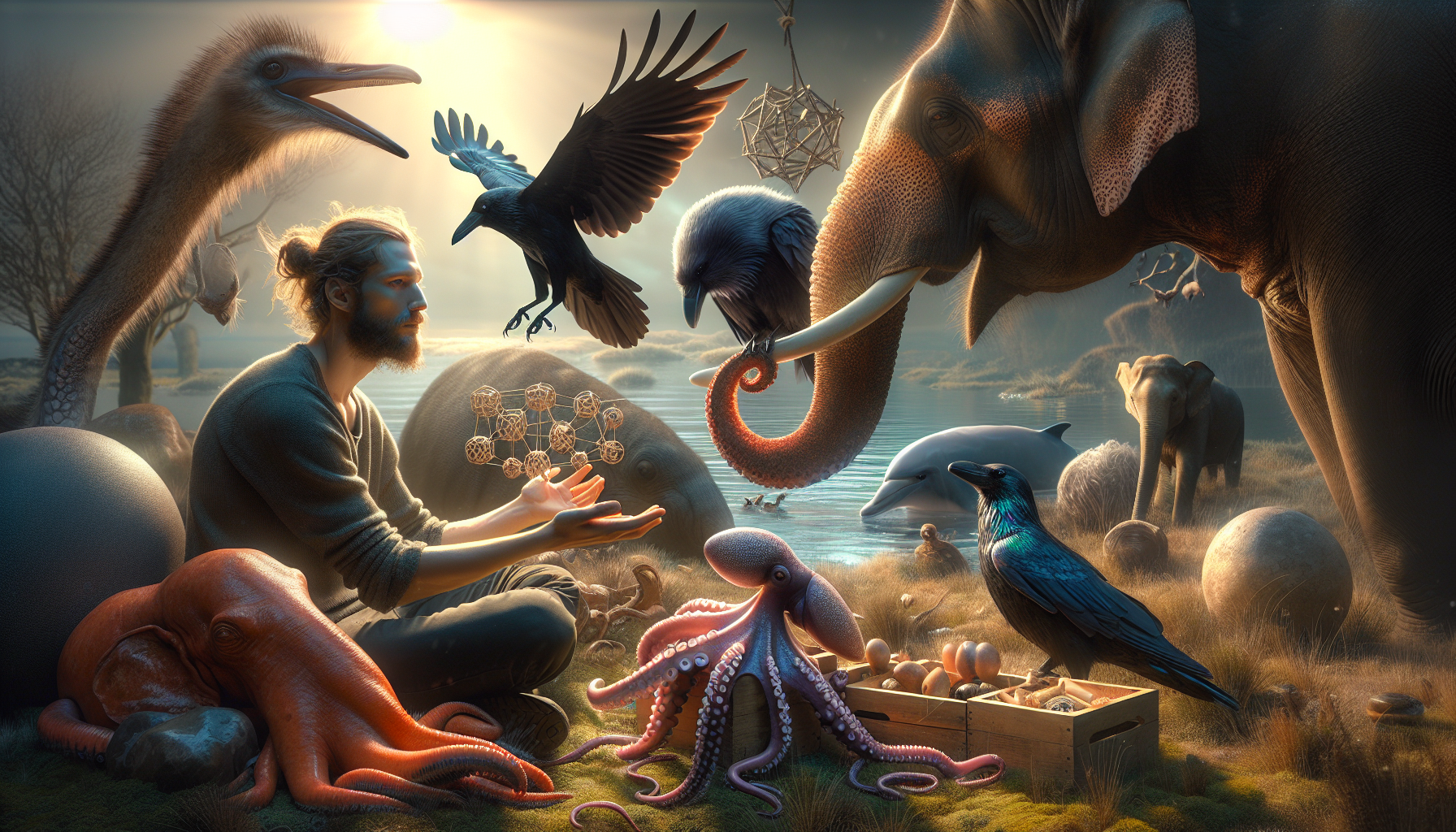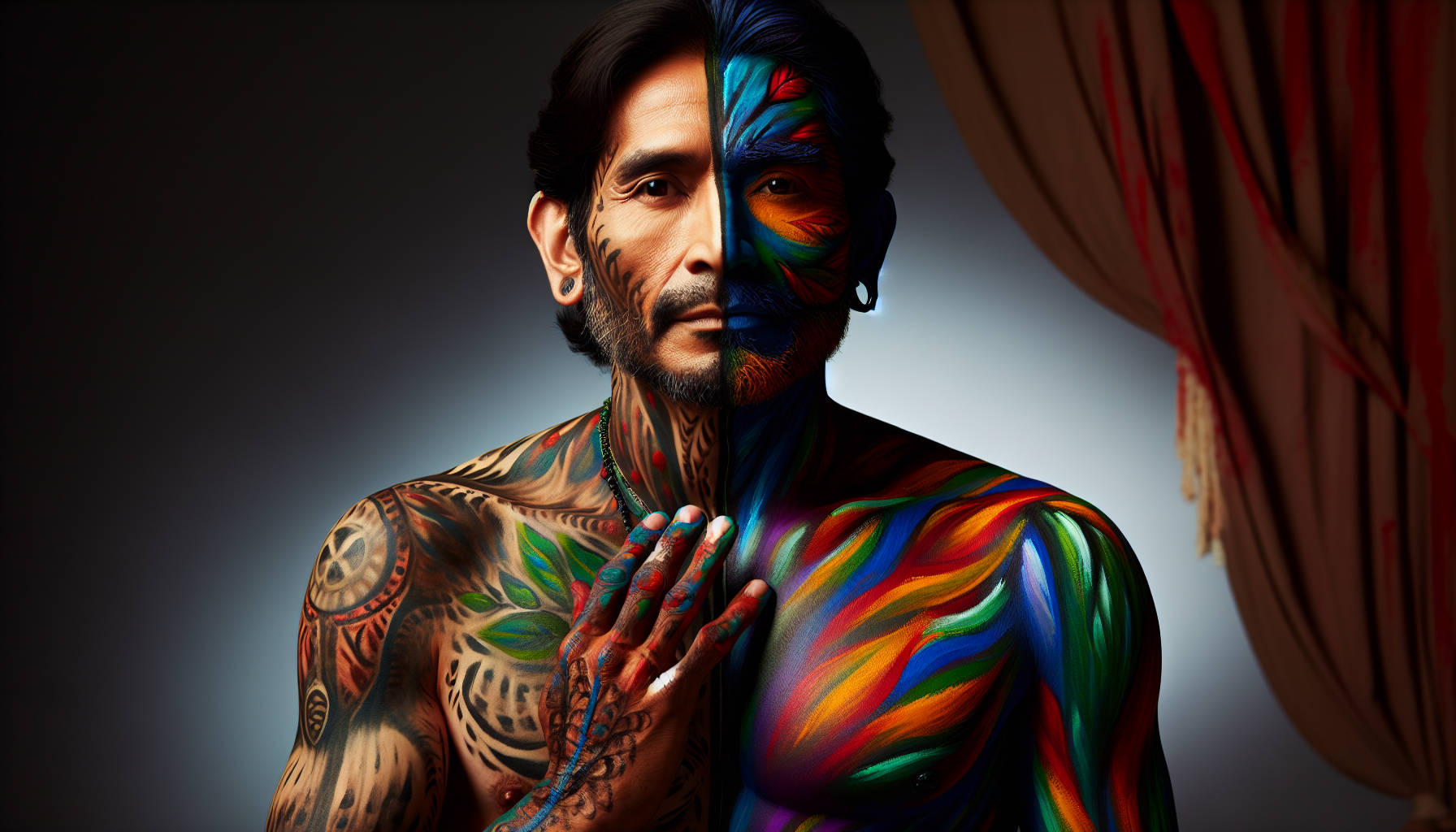In a world often shrouded in the gravity of everyday responsibilities and the weight of global issues, humor emerges as a beacon of relief and a tool of profound transformation. It is the universal language that transcends borders and cultural barriers, weaving its way through the fabric of human experience with an ease that is both refreshing and vital. As we navigate through life’s complexities, the act of laughing not only lightens our burdens but also opens a portal to the sacred — a space where joy, insight, and healing coalesce. In this exploration of “Laughing into the Sacred: The Transformative Power of Humor as a Release,” we delve into the multifaceted role humor plays in our lives, examining its capacity to heal, connect, and elevate our spirits. 🌟
Humor is often underestimated, dismissed as mere frivolity or distraction. Yet, its roots run deep, intertwining with the sacred aspects of life. It is in laughter that we find a release from the rigidity of our daily routines, allowing a momentary escape from stress and anxiety. But beyond mere escapism, humor possesses the transformative power to shift perspectives and foster deeper connections. It can bridge divides, facilitate conversations, and even challenge societal norms. This article will journey through the history of humor, its psychological and physiological impacts, and its role in fostering spiritual and personal growth. We will uncover how laughter acts as a catalyst for change, enabling us to embrace vulnerability and authenticity while connecting with others on a profound level.
As we embark on this exploration, prepare to uncover the surprising intersections between humor and spirituality, and how this dynamic duo can enhance personal well-being and community cohesion. From the science of laughter to its cultural implications, we will explore how humor serves as both a mirror and a balm, reflecting our shared humanity while soothing the soul. Whether through the lens of ancient wisdom or contemporary psychology, humor stands as a testament to the resilience and creativity of the human spirit. So, join us on this enlightening journey, as we laugh our way into the sacred and discover the transformative power of humor as a release. 😊
The Historical Perspective of Humor in Human Culture
Humor has always been an integral part of human culture, serving as a bridge between different civilizations, generations, and social classes. Its presence is omnipresent, from the playful banter in ancient texts to the sophisticated satire in contemporary media. Historically, humor has played a crucial role in social cohesion and conflict resolution, helping communities navigate through the intricacies of societal norms and expectations. Its origins can be traced back to early human societies, where humor was not only a form of entertainment but also a vital tool for communication and community bonding.
Throughout history, humor has evolved alongside human civilization, adapting to cultural, social, and technological changes. In ancient Greece, comedy was a respected theatrical genre, with playwrights like Aristophanes using satire to comment on political and social issues of the day. This tradition continued in the Roman Empire, where humor was utilized in literature, theater, and public discourse. Moving into the medieval period, humor became more diverse, finding expression in various forms such as jesters’ performances at royal courts, folk tales, and the emerging tradition of carnival, which allowed for a temporary subversion of social hierarchies.
The Renaissance and Enlightenment periods saw a flourishing of humor in the arts, as writers and thinkers used wit and satire to challenge prevailing ideologies and promote critical thinking. In the modern era, humor has become an even more powerful tool, thanks to the advent of mass media and the internet. Today, humor is a global phenomenon, transcending linguistic and cultural barriers, and playing a significant role in shaping public opinion and social movements. To explore more about the historical impact of humor, check out this insightful YouTube video by History Buffs.
The Psychology of Humor and Its Impact on Mental Health
Humor is not just a social construct but also a complex psychological phenomenon. Its impact on mental health is profound, offering numerous benefits that are well-documented in psychological research. Laughter, the most common expression of humor, triggers the release of endorphins, the body’s natural feel-good chemicals, promoting an overall sense of well-being and reducing stress. Furthermore, humor has been found to enhance cognitive function, improve problem-solving skills, and boost creativity, making it a valuable tool in both personal and professional settings.
From a therapeutic standpoint, humor is often used as a complementary treatment for various mental health conditions. Laughter therapy, for example, is a popular intervention that uses humor to relieve physical and emotional pain. It is based on the principle that laughter can interrupt the stress response, reducing anxiety and depression symptoms. Additionally, humor can serve as a coping mechanism, helping individuals reframe negative experiences and develop a more positive outlook on life. For a deeper dive into the psychological benefits of humor, you can explore research articles available on platforms like PubMed and PsycINFO.
Moreover, humor fosters social connections, which are vital for mental health. It creates a sense of community and belonging, as shared laughter can strengthen relationships and build trust. In group therapy settings, humor is used to break down barriers, facilitating open communication and promoting a supportive environment. The psychological impact of humor is not limited to individual well-being; it also extends to organizational and societal levels, where it can enhance workplace morale and drive social change. Explore the table below to see a comparative analysis of different humor therapies used in mental health treatment:
| Type of Humor Therapy | Primary Use | Benefits |
|---|---|---|
| Laughter Therapy | Stress Reduction | Improves mood, lowers blood pressure |
| Humor Writing | Creative Expression | Enhances creativity, improves communication |
| Stand-Up Comedy Workshops | Confidence Building | Boosts self-esteem, enhances social skills |
The Sociocultural Role of Humor in Contemporary Society
In today’s rapidly changing world, humor remains a powerful sociocultural tool that reflects and influences societal norms and values. It serves as a mirror to society, often highlighting absurdities and contradictions in cultural practices and social structures. Through satire and parody, humor can challenge power dynamics and question authority, providing a platform for marginalized voices and promoting social justice. In this way, humor functions as both a form of entertainment and a catalyst for social change.
Social media has revolutionized the way humor is created and consumed, making it more accessible and immediate. Memes, viral videos, and online comedy sketches are ubiquitous, shaping public discourse and influencing cultural trends. Platforms like TikTok, Twitter, and Instagram have democratized humor, allowing anyone with internet access to participate in the creation and dissemination of comedic content. This has given rise to a new generation of digital comedians who use humor to comment on current events, political issues, and social phenomena.
However, the global reach of humor also presents challenges, particularly in terms of cultural sensitivity and the potential for misinterpretation. What is considered humorous in one culture may be offensive or misunderstood in another, leading to cross-cultural tensions. Therefore, it is important for creators and consumers of humor to be mindful of context and audience, fostering an inclusive and respectful environment for humor to thrive. To further explore the role of humor in contemporary society, watch the video “The Power of Comedy in Society” by TEDx Talks on YouTube.
The Transformative Power of Humor in Personal Growth and Development
On a personal level, humor can be a powerful tool for growth and self-discovery. It encourages individuals to embrace their imperfections, find joy in everyday moments, and develop resilience in the face of adversity. By laughing at oneself and life’s challenges, individuals can gain perspective and reduce the power of negative emotions, ultimately leading to greater emotional intelligence and self-awareness.
Humor also plays a crucial role in enhancing interpersonal relationships. It can diffuse tension, facilitate communication, and foster empathy and understanding. When used effectively, humor can break down barriers and build rapport, making it an essential skill in both personal and professional interactions. For those looking to enhance their humor skills, participating in improv classes or comedy workshops can be a fun and effective way to build confidence and develop a unique comedic voice.
- Embrace humor as a daily practice to enhance well-being.
- Engage with diverse comedic content to broaden perspectives.
- Consider participating in humor-related activities for personal growth.

Conclusion
Conclusion: Embracing the Sacred Power of Laughter
In our exploration of “Laughing into the Sacred: The Transformative Power of Humor as a Release,” we’ve delved into the profound ways humor intersects with our emotional, psychological, and even spiritual lives. As we navigated through the various facets of humor, it became evident that laughter is not merely a response to comedy but a deeply rooted human experience with transformative capabilities.
Recap of Key Points
Firstly, we examined the psychological benefits of humor, highlighting its ability to reduce stress and anxiety. Scientific studies have shown that laughter triggers the release of endorphins, our body’s natural feel-good chemicals, which promote an overall sense of well-being. These effects are not only immediate but can also contribute to long-term mental health by enhancing mood and increasing resilience against adversity.
Secondly, we explored humor’s social dimension, emphasizing its role in strengthening relationships and fostering a sense of community. Laughter creates bonds by synchronizing the brain activity of those sharing the moment, promoting empathy, and enhancing communication. In an age where digital interactions often replace face-to-face connections, humor remains a timeless bridge that can unite people across cultural and social divides.
Additionally, the article discussed humor as a tool for personal transformation and spiritual growth. By allowing us to see the world from different perspectives, humor encourages flexibility in thinking and openness to new experiences. It invites us to relinquish rigid beliefs and embrace the fluidity of life, fostering a deeper connection with ourselves and the world around us.
The Importance of Humor
Understanding and embracing the transformative power of humor is crucial in today’s fast-paced, often stressful world. Humor offers a pathway to healing and resilience, enabling us to navigate life’s challenges with grace and levity. It is a sacred tool that reminds us of our shared humanity and the joy of living. As Victor Borge wisely said, “Laughter is the shortest distance between two people.”
Encouragement to Engage
As we conclude our exploration, we invite you to reflect on how humor influences your life. Consider the moments when laughter has brought clarity, relief, or connection. How can you incorporate more humor into your daily routine, not just as a means of entertainment but as a practice of mindfulness and compassion?
We encourage you to share your thoughts and experiences in the comments section. Your insights can enrich this conversation and inspire others to view humor as a sacred, transformative force. If you found value in this article, please share it with friends and family. Together, we can foster a community that appreciates the power of laughter to heal, connect, and transform.
Moreover, apply what you’ve learned by consciously choosing to see the humor in everyday situations. Laugh at your mistakes, find joy in the mundane, and allow humor to be your guide in times of uncertainty. By doing so, you not only enhance your own well-being but also contribute to a more joyful and compassionate world.
In closing, may you continue to explore the sacred power of laughter in your life, finding in it a source of strength, healing, and connection. Let’s celebrate humor as the divine gift it is, a gentle reminder of the beauty and absurdity of the human experience. Keep laughing, keep connecting, and keep transforming.
For further reading on the subject, you might explore reputable sources such as the Mayo Clinic’s insights on stress management through laughter (https://www.mayoclinic.org/healthy-lifestyle/stress-management/in-depth/stress-relief/art-20044456) or delve into the psychology of humor at Psychology Today (https://www.psychologytoday.com/us/basics/humor).
😊 Thank you for joining us on this journey. Here’s to laughter as a sacred, transformative power in all our lives!
Toni Santos is a visual storyteller and cognitive explorer whose work delves into the mental landscapes of ancient cultures—revealing how different civilizations perceived reality, memory, and meaning long before modern psychology existed. Through symbolic imagery and narrative inquiry, Toni brings to life the divergent ways of thinking that shaped lost worlds.
His creative path is guided by a fascination with non-linear logic, oral cosmologies, and the mythic frameworks that once guided decision-making, emotion, and identity. From memory temples carved in stone to visual languages encoded in textiles, every piece Toni creates reflects the vast cognitive diversity of the human story.
With a foundation in visual design and cultural semiotics, Toni blends analytical depth with artistic expression. His work goes beyond historical reconstruction—it reawakens the embodied, intuitive, and ritual-based intelligence of ancient minds, inviting us to question the assumptions of modern thought.
As the mind behind Vizovex, Toni curates visual studies, essays, and immersive content that explore forgotten epistemologies—ways of knowing that connected people to myth, land, and each other in profoundly different ways.
His work is a tribute to:
The symbolic intelligence of pre-modern cultures
The neural diversity embedded in ancient rituals and storytelling
The deep memory systems that shaped identity and perception
Whether you’re a researcher, an artist, or a seeker of hidden wisdom, Toni invites you to enter a space where cognition is culture, and where the past speaks through signs, cycles, and symbols—one myth, one memory, one mind at a time.





